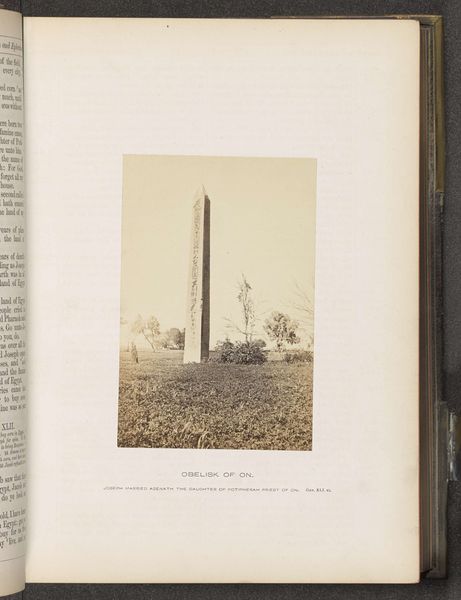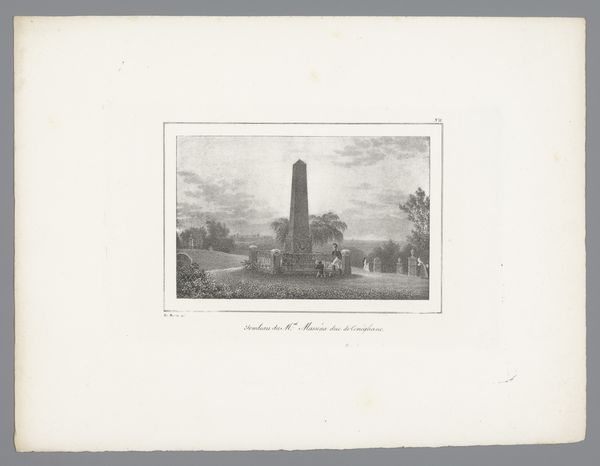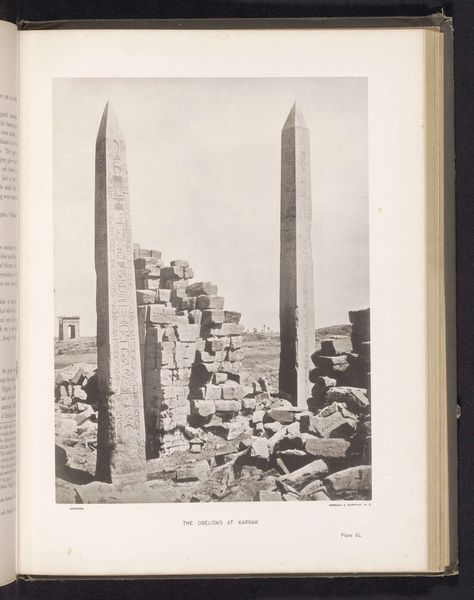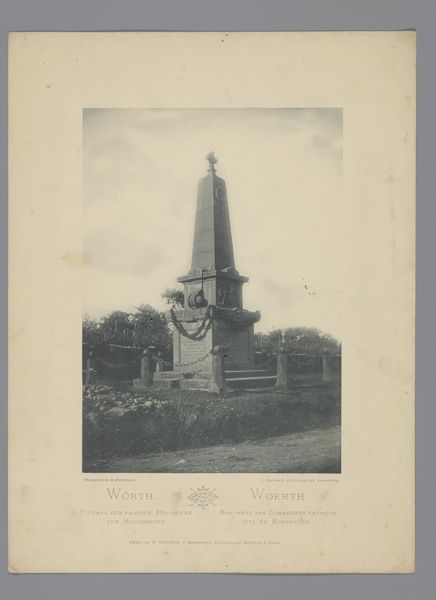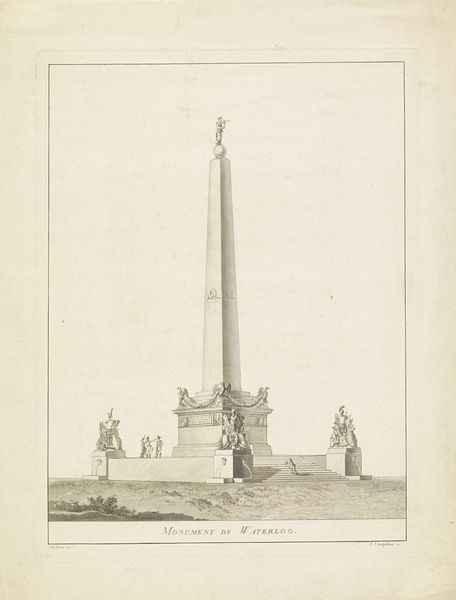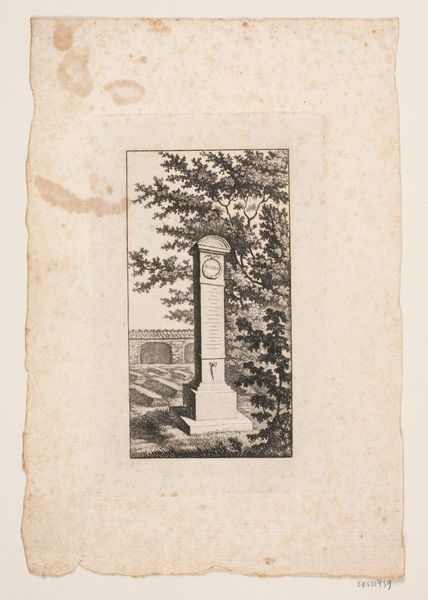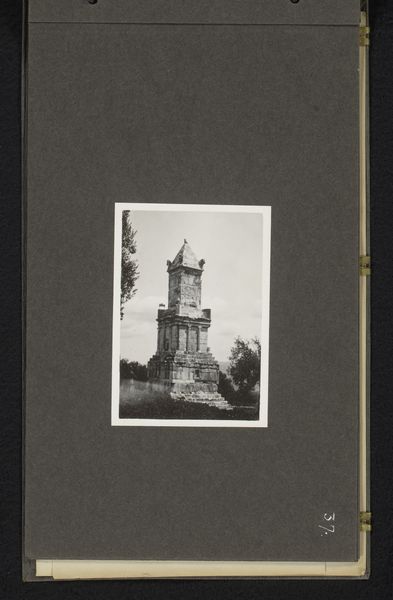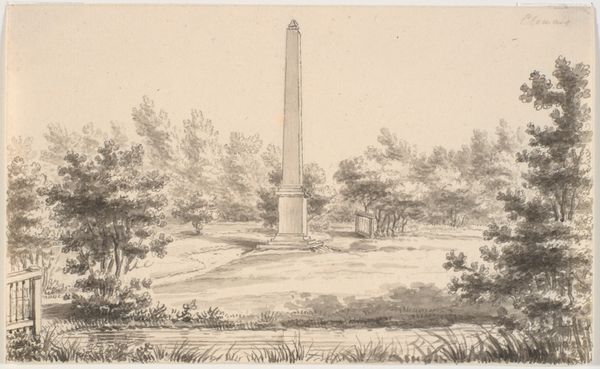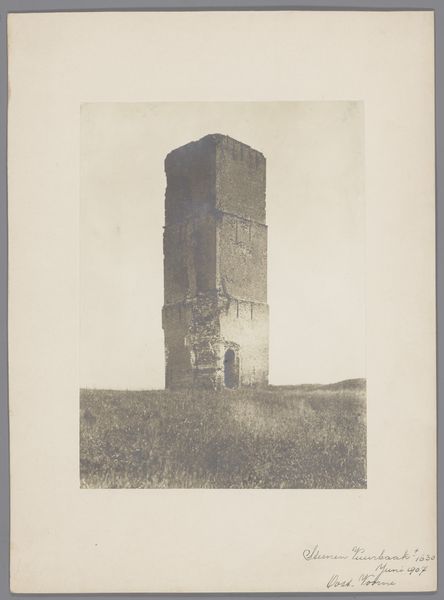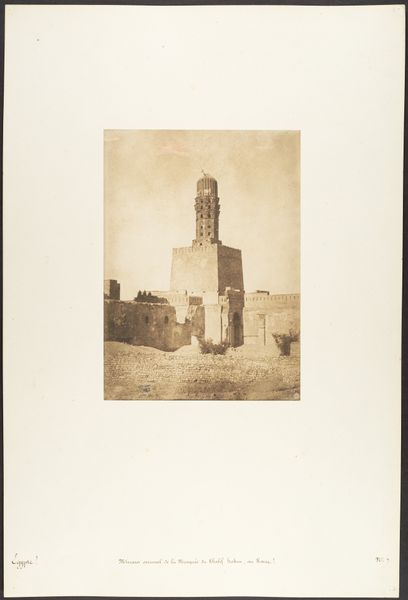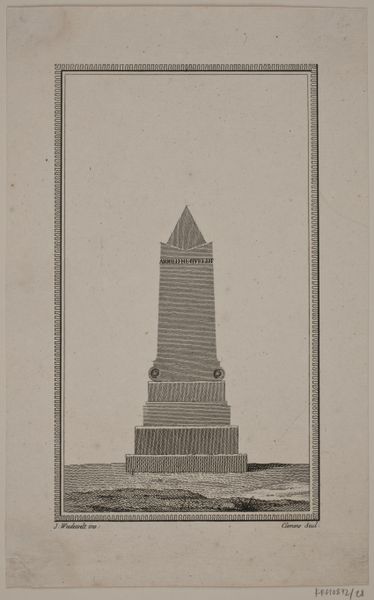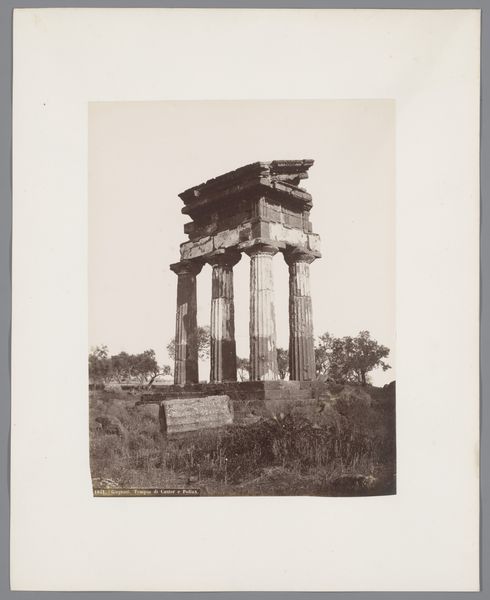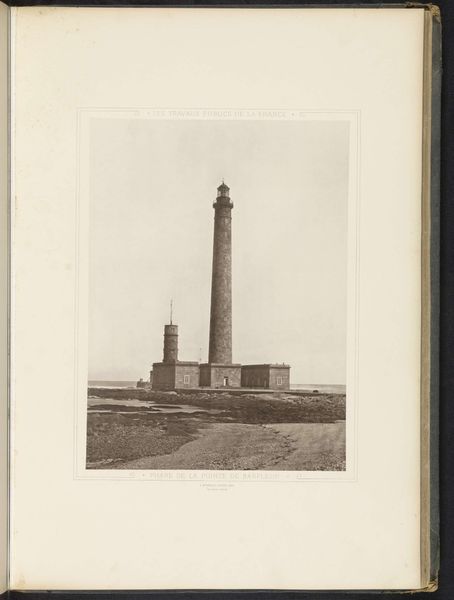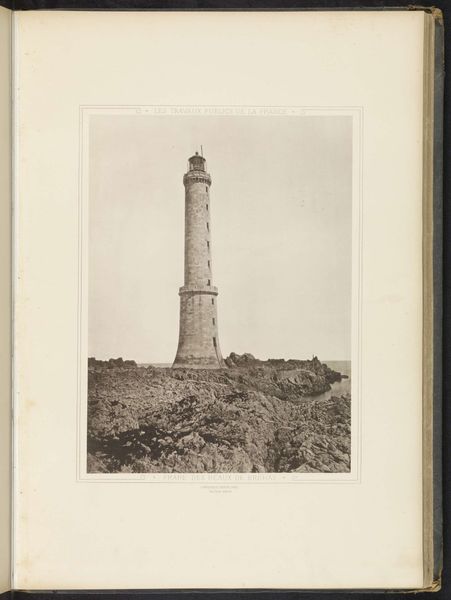
photography, sculpture
#
landscape
#
ancient-egyptian-art
#
photography
#
carved into stone
#
ancient-mediterranean
#
sculpture
#
realism
#
statue
Dimensions: height 289 mm, width 202 mm
Copyright: Rijks Museum: Open Domain
Curator: Ah, here we have "The New York Obelisk," a photograph dating back to 1881. Doesn’t it just whisper stories of ancient lands meeting modern ambition? Editor: It does. My first thought, honestly, is of scale—not just the physical immensity of the obelisk itself, which must have been mind-boggling, but the sheer labor involved in quarrying, transporting, and erecting that thing. What materials did they even use to move something so massive back then? Curator: Precisely! The photograph captures a palpable sense of displacement, almost melancholy. To think of the skilled hands that carved those hieroglyphs—symbols laden with meaning, prayers frozen in stone—now standing sentinel in Central Park. Editor: Absolutely. Consider the journey—it's more than a physical move; it represents the material culture stripped from one context and plopped into another. Those hieroglyphs, originally part of a cohesive belief system, now become aesthetic objects, almost décor, in the burgeoning metropolis. I am very interested in understanding how and with which material this piece was assembled, the joints, and how well those hold now. Curator: It is like a strange reincarnation, isn't it? Reborn from the Egyptian sands into the bustling heart of a new world, viewed through the lens of an early photographer. Perhaps a hint of romanticism here? Editor: More a statement about power, I think. It wasn’t just unearthed; it was actively claimed and shipped. A material manifestation of dominance—look what we can do; we control the past! But also, it seems like the erosion, it would be good to learn about the conservation methods that would be needed to have it standing many years more, no? Curator: A stark point! But the photograph, regardless, softens that a little, casting the obelisk in a timeless light. There's an odd harmony between the ancient monument and the burgeoning cityscape that even shows a few green leafy friends hanging in the back. Editor: Agreed, the act of documenting it—through this specific process—freezes the materials involved into history, allowing it to transcend a mere display of power, prompting further interrogation about this act of curation itself. What choices did the photographer make, how were they developing their photography at the time this photo was shot? All this speaks about social change in regards to industry and wealth! Curator: Yes, exactly! And I suppose it invites all of us, in the now, to contemplate those echoing narratives… don't you think? Editor: Definitely, and hopefully through a new perspective informed by an analysis of material conditions and global networks.
Comments
No comments
Be the first to comment and join the conversation on the ultimate creative platform.
